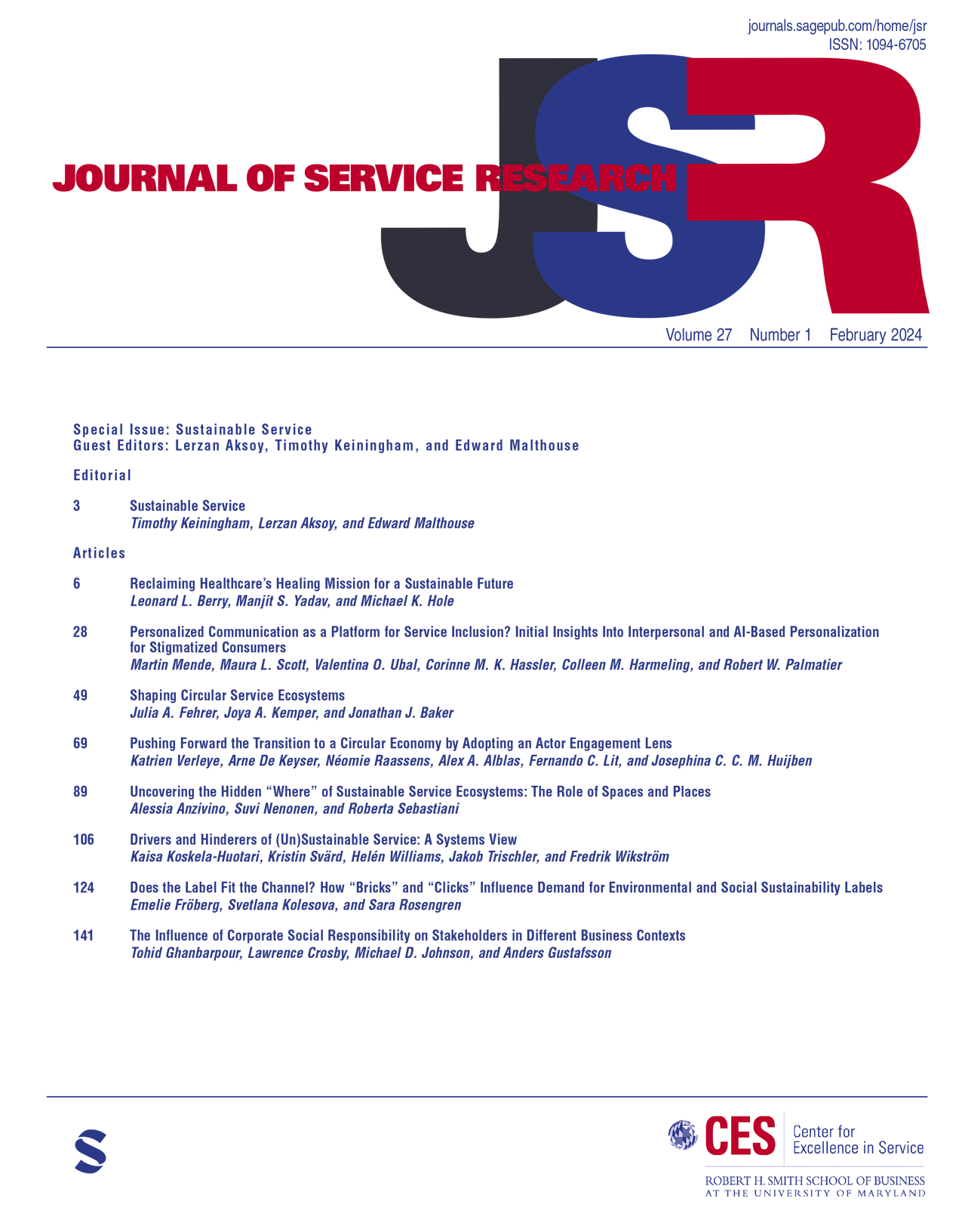独处还是共处?前线拟人化机器人如何影响单独(与联合)服务消费
IF 8.6
2区 管理学
Q1 BUSINESS
引用次数: 0
摘要
近年来,个人消费已成为一种新兴趋势。然而,随着越来越多地采用一线类人机器人,单独客户的服务体验仍不明朗,尤其是与联合客户的直接比较。基于拟人化和信息处理理论的文献,本研究探讨了一线拟人化机器人(FAR)是否以及如何改善单独客户相对于联合客户的服务体验。包括实地和在线实验在内的四项研究的数据显示,与共同的客户相比,单独的客户更有可能认为FAR提供了融洽的关系,但也令人毛骨悚然,从而导致不同的服务评估(态度和行为结果)。然而,作为并行机制,这些社会关系和怪异程度取决于FAR的特征、服务交付过程和客户的消费目标。当机器人具有群体内偏爱、服务过程剥夺了顾客的控制权、顾客具有享乐性消费目标时,融洽(怪异)机制得到加强(削弱)。随着在酒店服务中采用一线类人机器人的热潮,本研究为单独客户服务提供了管理相关的启示,作为一个新兴的细分市场,与传统的共同客户细分市场一起。本文章由计算机程序翻译,如有差异,请以英文原文为准。
Being Alone or Together: How Frontline Anthropomorphized Robots Affect Solo (vs. Joint) Service Consumption
Solo consumption has become an emerging trend in recent years. However, the service experiences of solo customers with the growing adoption of frontline humanlike robots remain unclear, particularly in direct comparison with joint customers. Building on the literature of anthropomorphism and information processing theory, this study examines whether and how frontline anthropomorphized robots (FAR) might improve the service experiences of solo customers relative to their joint counterparts. Data from four studies, including field and online experiments, reveal that solo customers are more likely than joint customers to perceive FAR as offering rapport but also as being eerie, leading to different service evaluations (both attitudinal and behavioral outcomes). Nevertheless, as parallel mechanisms, these levels of social rapport and eeriness are contingent on features of the FAR, the service delivery process, and customers’ consumption goals. The rapport (eeriness) mechanism is strengthened (weakened) when the robot is of in-group favoritism, the service process deprives customers of control, and customers have a hedonic consumption goal. With the boom in adopting frontline humanlike robots in hospitality services, this study offers managerially relevant implications for serving solo customers as an emerging segment along with the traditional segment of joint customers.
求助全文
通过发布文献求助,成功后即可免费获取论文全文。
去求助
来源期刊

Journal of Service Research
BUSINESS-
CiteScore
20.30
自引率
6.50%
发文量
28
期刊介绍:
The Journal of Service Research (JSR) is recognized as the foremost service research journal globally. It is an indispensable resource for staying updated on the latest advancements in service research. With its accessible and applicable approach, JSR equips readers with the essential knowledge and strategies needed to navigate an increasingly service-oriented economy. Brimming with contributions from esteemed service professionals and scholars, JSR presents a wealth of articles that offer invaluable insights from academia and industry alike.
 求助内容:
求助内容: 应助结果提醒方式:
应助结果提醒方式:


